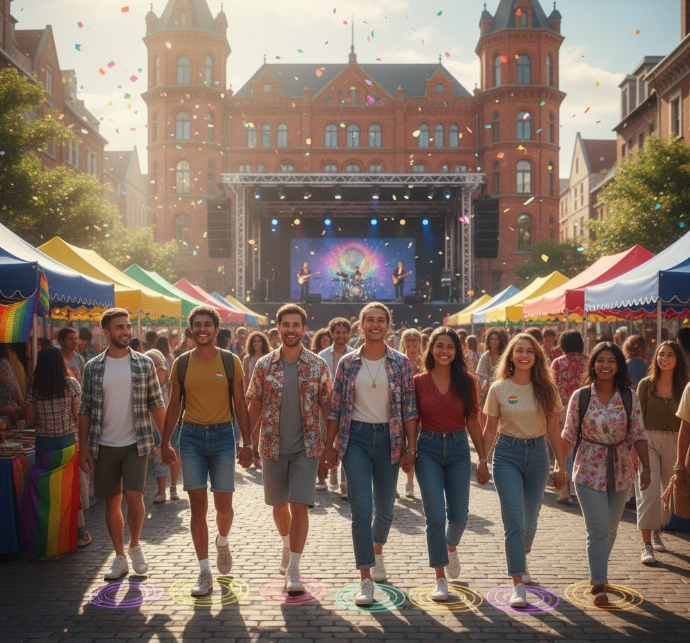Finding Belonging as an Adult — When You Don’t Fit the Mold
Finding your people as an adult isn’t as simple as it sounds. Between work, responsibilities, and the pressure to “have it together,” many of us are quietly wondering - where do I really fit?
It’s something I hear often in therapy: “I feel like everyone else has their group. I have friends, but I still feel disconnected.”
You’re not alone in feeling that way. In fact, so many people in their 20s, 30s, and even 40s are realizing that the sense of community they once had has slowly faded - and no one really told us how to rebuild it.
Why Belonging Feels Harder as We Grow Up
In childhood and young adulthood, community tends to be built in. School, college, work, and even shared living spaces create natural opportunities to meet people and connect. But as we get older, those built-in networks often dissolve.
Now, friendships take intention - something that feels nearly impossible when we’re stretched thin and tired. Add to that the pressure to project that you’re “doing great” on social media, and it’s easy to feel like you’re the only one struggling to connect. And if you’re someone who’s always felt a little different - LGBTQIA+, neurodivergent, creative, spiritual, or simply not interested in the “expected” milestones - belonging can feel even more complicated. So many adults feel like they’re orbiting outside the norm, unsure where they truly fit.
Belonging isn’t about fitting in - it’s about being accepted exactly as you are.
The Ways We Try to Cope (That Often Keep Us Stuck)
When that ache of disconnection shows up, most of us try to fill it with something:
Keeping ourselves busy with work or constant productivity.
Scrolling endlessly, hoping to feel connected.
Settling for surface-level friendships because deeper ones feel risky.
Or convincing ourselves we’re “too independent” to need anyone.
But these coping strategies tend to deepen the very loneliness we’re trying to avoid. We stay in motion - but we don’t feel closer to anyone, including ourselves.
Therapy can help slow that down. It’s a space to notice the ways you might be protecting yourself from connection, and to gently relearn what safe, reciprocal relationships can look like.
You deserve connection that doesn’t drain you.
If you’ve been stuck in the cycle of busyness or surface-level relationships, therapy can help you rebuild from a place of authenticity - not exhaustion.
Relearning What Belonging Actually Means
Belonging isn’t about being liked by everyone. It’s about finding - and creating - spaces where you can show up fully as yourself.
From a holistic lens, belonging begins internally. When you start accepting the parts of you you’ve been hiding or quieting, you create space for genuine connection to grow. That might mean:
Letting go of perfection and leaning into authenticity.
Choosing curiosity instead of judgment when you meet new people.
Learning DBT and mindfulness skills to help you stay grounded in connection, even when vulnerability feels uncomfortable.
Sometimes the first step toward belonging isn’t finding the right group - it’s giving yourself permission to stop shrinking to fit in.
Gentle Ways to Build Belonging
If you’re ready to begin, here are some ways to reconnect that don’t require forcing it:
Join community groups or classes tied to your interests, not just your identity - creativity, movement, mindfulness, nature, etc.
Try reconnecting with someone you already know - send a message just to check in, no big expectations.
Explore local LGBTQIA+ affirming spaces or online communities that feel aligned with your values.
Practice mindfulness during moments of genuine connection - notice how your body feels when you feel seen or understood.
These small, intentional actions can slowly rebuild that feeling of being grounded in your relationships again.
Final Thoughts
If you’ve ever felt like you don’t quite fit anywhere, please know this: you’re not broken or behind. You’re human - navigating a world that often confuses visibility with belonging.
Belonging doesn’t always mean finding a ready-made space. Sometimes it means creating it - one honest connection at a time.
Ready to Explore What Belonging Could Look Like for You?
If you’re seeking deeper connection or support in building authentic relationships, therapy can help.
I offer virtual, holistic, and LGBTQIA+ affirming therapy across Florida. Together, we can explore what it means to feel at home - within yourself and in your world.





